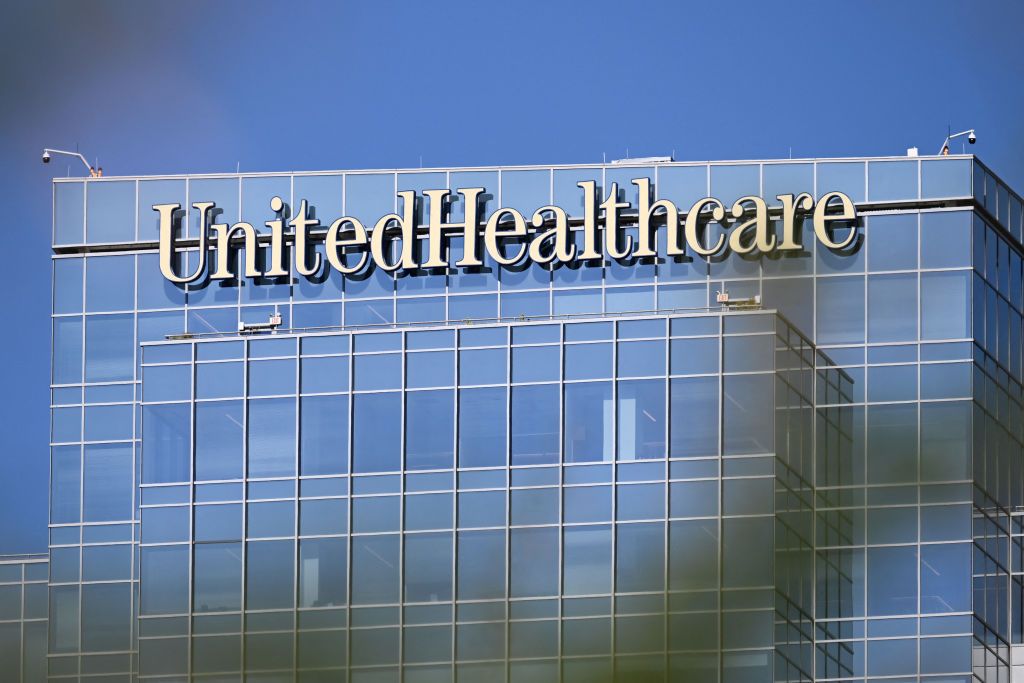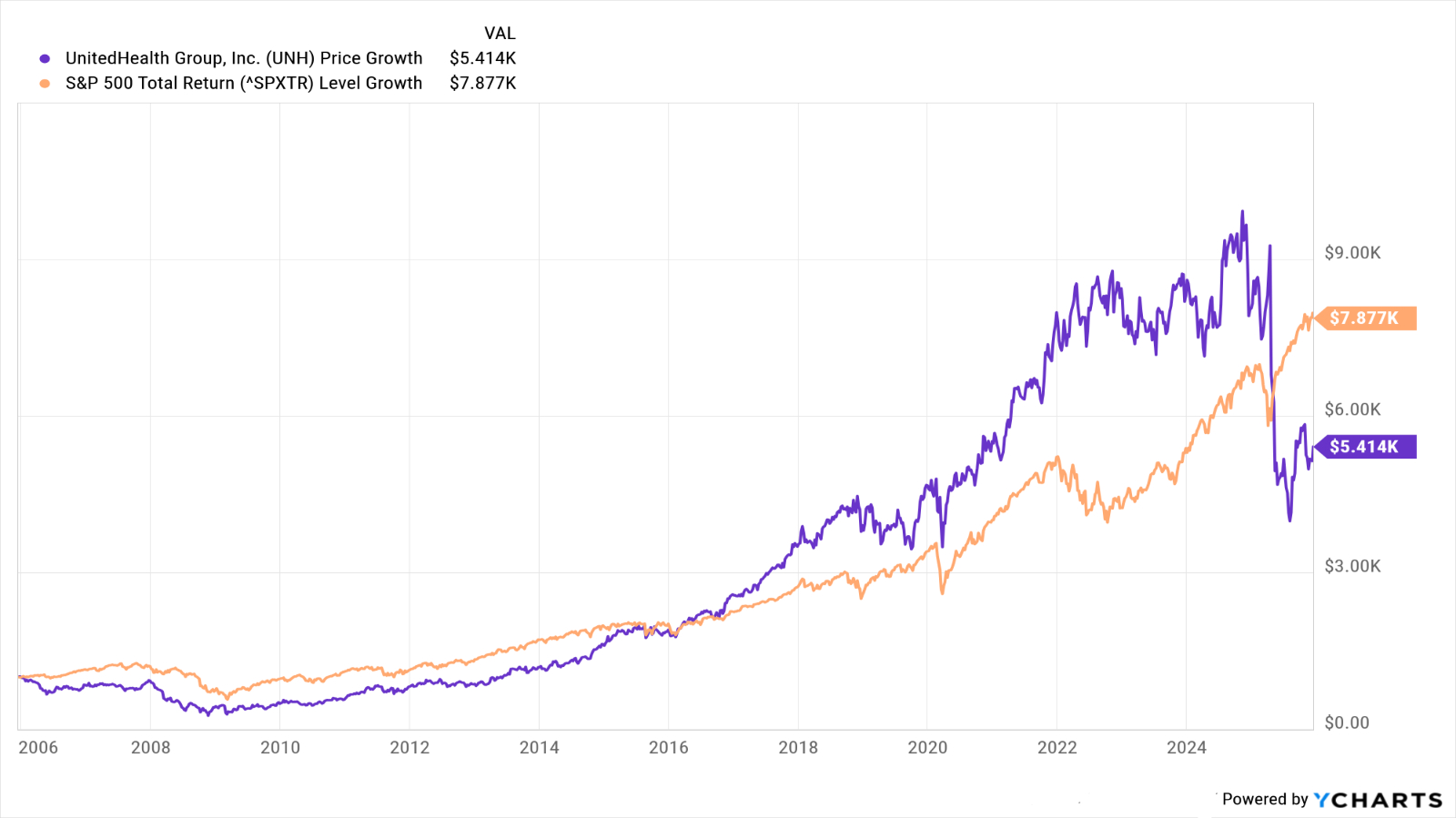
UnitedHealth Group (UNH) was a long-time market beater in a big way before 2025 became its annus horribilis.
Shares in the nation's largest health insurer had been a great buy-and-hold bet for decades, thanks to a relentless focus on growth through acquisitions.
The company, which started with humble beginnings in the 1970s, was a pioneer in offering network-based health care plans with the aim of controlling costs.
A few decades later, scores of acquisitions gave UNH an essentially vertical portfolio of health care businesses. By 2012, the company was such a force in its sector that the stock was added to the Dow Jones Industrial Average.
Today, UNH provides health insurance benefits to more than 50 million people. Its non-insurance Optum business, which helped drive much of the Dow Jones stock's upside in recent decades, is one of the largest employers of physicians in the U.S.
With a portfolio of businesses including insurance, pharmacy benefits management, doctor practices, medical billing and more, UnitedHealth became a growth darling in a defensive sector.
In 2024, UNH reported revenue of more than $400 billion, or a 100% increase over the $200 billion in revenue the company booked in 2017. Apple (AAPL), by comparison, saw its top line rise 70% to $391 billion over the same span.
Even more important, UNH maintained its ability to generate strong and steady profit growth. Operating earnings grew at an average rate of nearly 18% year over year as it doubled its revenue.
Investors were rewarded handsomely. Shares in UNH beat the broader market, often by wide margins, in both good years and bad. In 2021, when the S&P 500 returned 29% including dividends, UNH returned 45%. The following year, when the market lost 18%, UNH was up 7%.
Then things went awry.
The bottom line on UNH stock?
UNH was cruising along with long-term market-crushing returns until seemingly everything went sideways starting in late 2024: rising Medicare costs, a Department of Justice investigation into its billing practices and the murder of an executive.
Shares lost more than half their value at one point in 2025 and remained down about 40% through the first eight months of the year. A company with a peak market cap of $575 billion as recently as November 2024 is now worth about $340 billion.
Put another way, UNH has lost $235 billion in value from its top — or more than the entire market cap of McDonald's (MCD).
True, Berkshire Hathaway's (BRK.B) Warren Buffett spied a bargain in UNH. The chairman and CEO, who will step down at the end of the year, added the troubled insurer to the Berkshire Hathaway equity portfolio in the second quarter.
In addition to a depressed share price, Buffett was also likely attracted to UNH's dividend. At 2.6%, UNH yields more than double the S&P 500.
Buffett scooping up 5 million shares in UNH might have given existing shareholders a boost of confidence, but it might take a good long while for their own positions to recover. As you can see in the chart below, UNH's deep funk has ruined its long-term returns.

Over its entire life as a publicly traded company, UNH generated an annualized total return (price change plus dividends) of 18%. That beats the broader market by a wide margin, or nearly 8 percentage points.
Sadly, that's about the only time frame that makes UNH look good. Shares have now underperformed the S&P 500 over every standardized period except 15 years. As for the past two decades, UNH's return of 10.2% lags the S&P 500 by almost a percentage point.
In other words, if you put $1,000 into UnitedHealth stock 20 years ago, it would today be worth just $5,400. The same sum invested in the S&P 500 would theoretically be worth almost $7,900 today.
UNH was a massive market beater for ages — until it wasn't.
That hardly means the stock can't come back. Indeed, Buffett isn't the only one bullish on its prospects. Of the 27 analysts covering UNH tracked by S&P Global Market Intelligence, 13 call it a Strong Buy, six say Buy, six have it at Hold and two rate it at Strong Sell.
That works out to a consensus recommendation of Buy, with solid conviction.







